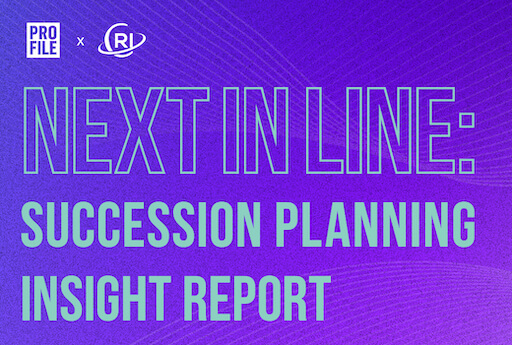You don’t play Brooklyn-rules stickball in Manhattan. Each borough has its own way of picking teams and playing the game. In one neighborhood, the ball is thrown to the batter. In another, the pitcher must bounce the ball. Matt Argano grew up playing the quintessential New York sport in Brooklyn. Understanding how the rules changed based on the fabric and culture of each neighborhood became important. “If you wanted to play in Brooklyn, you needed to understand Brooklyn’s rules,” he says.
Organizational culture is no different; each company has its own unique and defining culture. Today, Argano is the senior vice president of human resources at The Fresh Market, a supermarket chain with more than 150 locations and 11,000 employees. It’s Argano’s job to “understand, preserve, and build on the culture at The Fresh Market while serving as an ambassador and gatekeeper,” he says—and if he can provide, define, and communicate the rules, company employees can play the game at a high level.
For Argano, it’s important that new employees understand why things are the way they are. Although The Fresh Market went public in 2010, the company remains driven by the core principles brought by founders Ray and Beverly Berry, who used their life savings to open their first grocery store in 1982. Thirty-two years later, they still focus on three things: great tasting products, friendly employees, and exceptional customer service. In the past, the Berrys toiled to create an inviting atmosphere full of high-quality products; today, employees are still encouraged to get to know their customers and are even empowered to crack open items and offer samples on the spot.
Argano came to the company two years ago after spending 16 years at Bed Bath & Beyond, The Children’s Place, and Maidenform Brands—three other companies with strong founder cultures. In earning a Ph.D. in organizational leadership from Tennessee Temple University, he completed his dissertation on the relationship between a leader’s personality traits and the levels of employee commitment in organizations. In doing so, Argano has learned how critical it is for HR leaders to help pass on an organization’s culture to its employees. “I want our employees to understand the company and also see how great of a place it is,” he says. “But every year, it should become a better place to work.”
Argano is committed to hiring great people and developing HR programs, but says he is “perpetually paranoid” about elevating the employee experience. All but three percent of The Fresh Market’s workforce is in the stores. Opportunities for personal and professional growth, along with strong benefits, are making The Fresh Market a destination brand and an employer of choice.
In the coming months, Argano will work to preserve The Fresh Market’s culture during a period of ambitious growth. After three consecutive years of double-digit sales growth, the company plans to increase store count by 15 percent over each of the next several years. The Fresh Market moved into California for the first time in 2012, and sees additional opportunities in the Southwest and Northeast.
A strong road map will help company executives keep The Fresh Market’s DNA intact during the rollout of more than 20 new stores each year. By hiring people that understand internal values and bringing managers that recognize achievement and reward success, Argano will have the tools necessary to complete his task. “We know what makes us a special company,” he says. “We share the vision in a clear way. If our objectives or financials change, the road map is still the road map, and it comes through authentic leadership.”
The Fresh Market believes in providing opportunities. In fact, the ideal is held so dearly that every single store manager and district manager in the grocery store chain has been promoted from within. “Managers already know our culture,” Argano says. “Why would we have to hire externally when we can promote someone to a new store and automatically have a brand ambassador in a new market who will bring passion and knowledge to the hiring and management process?”
As the company enters new markets and creates new partnerships, Argano is focused on hiring, developing, and retaining quality employees through what he calls a “People First” initiative. A system of goal setting, individual development plans, field mentoring programs, and leadership competencies help company leaders identify high potential and performing employees. Then, the management team “calibrates talent” by discussing where employees fit in the company’s growth plan. “We’re not necessarily hiring someone for the job they will do today, but for the job they will do in three years,” Argano says. A smaller ratio of district managers to stores helps his leaders get to know each employee and speeds the development process. Over the next year, the company will introduce its Fresh Market online university and learning management system to deliver valuable training throughout the organization.
Last fall, Argano went to career day at his six-year-old son’s school. After hearing about human resources, the child said “You help people, Dad.” Argano likes that job description. As The Fresh Market ramps up to a target mark of 500 stores, he’ll continue to develop and build programs to enhance the employee experience and preserve longstanding company traditions.














